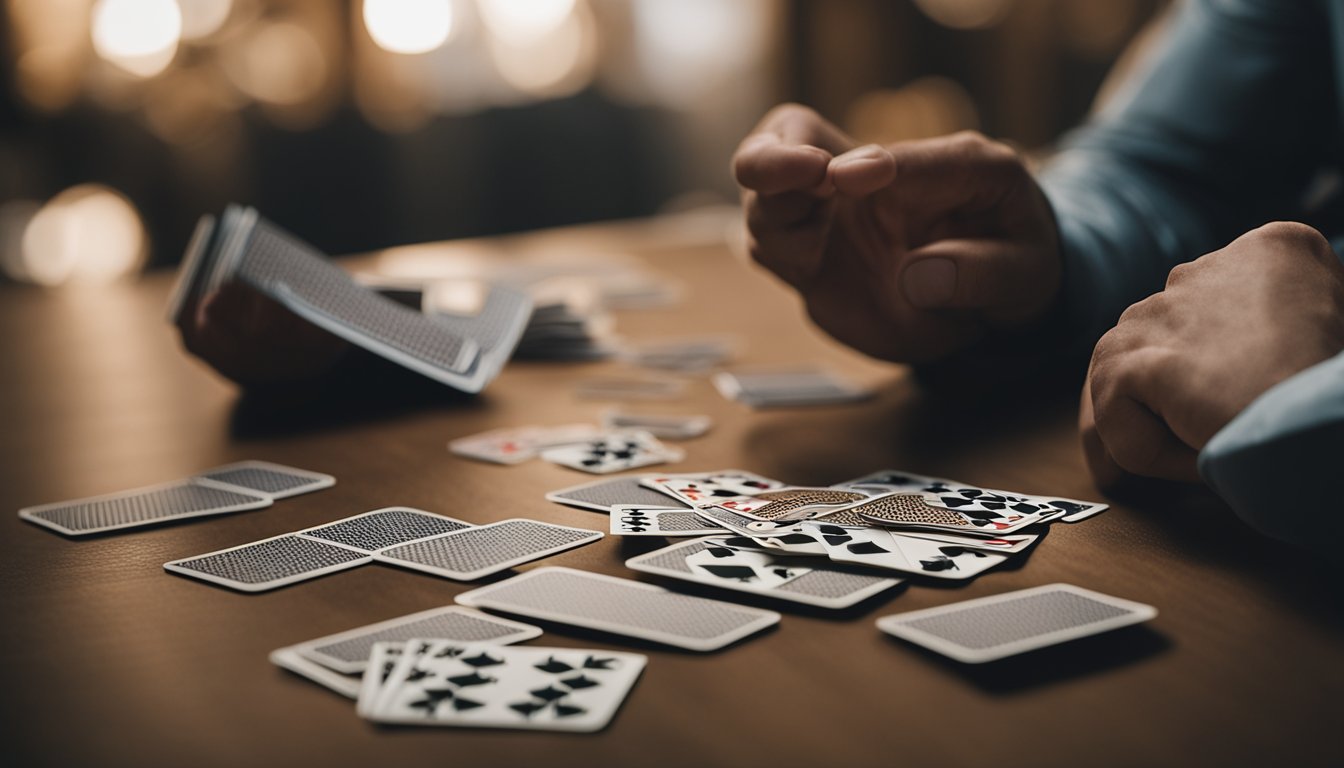How to Become a Memory Master
Forget the myth of memory masters as gifted geniuses. Consider these individuals more like memory athletes who push their minds to the limit in competitions to memorize mountains of information under pressure. But their extraordinary feats aren’t magic; they’re the result of dedicated practice and powerful techniques like the “method of loci” and “linked lists.”
The journey to memory mastery is about unlocking a deeper understanding of your brain and transforming information into vivid, unforgettable experiences. By practicing and following the prescribed techniques, most anyone can recall hundreds of random words with ease, recite a deck of cards backward, or master a new language at lightning speed.
These feats are attainable, and with the right training and by leveraging the many online resources and training apps, you can gain amazing memory mastery beyond your imagination.
Understanding Memory

To master one’s memory, it is essential to grasp the complex process of retaining and recalling information, including the mechanics of memory, the evolution of techniques to enhance it, and the neural networks that facilitate this remarkable cognitive function.
History of Memory Training
Memory training has roots in ancient cultures, with methods evolving alongside the understanding of the mind. The method of loci, also known as the memory palace, journey method, or memory spaces, is an ancient mnemonic device that uses visualization to enhance memory recall. It involves imagining a familiar location, like your home or a walk you often take, and mentally placing items you want to remember at specific points along the route. When you want to recall the information, you simply “walk” through the location in your mind, picking up the items you placed there.
Memory and the Brain
Memory functions through three primary processes: encoding, storage, and retrieval. Encoding is the initial perception and learning of information. Storage denotes maintaining this information over time, and retrieval is the ability to access the information when needed.
Imagine your brain as a vast network of highways, with neurons acting as cars transporting information. The synapses are the junctions where these cars “talk” to each other, sending electrical and chemical signals. Every time you repeat something, it’s like sending a car through that specific synapse junction. With each pass, the pathway gets smoother, wider, and more efficient. Think of it like carving a deeper groove in the road – the next time the information needs to travel, it takes a well-worn, lightning-fast route.
This isn’t just a metaphor – actual physical and chemical changes happen at the synapses with repetition. Neurotransmitters, the brain’s chemical messengers, become more abundant and efficient at transmitting signals. Additionally, proteins that strengthen and stabilize the connections between neurons are produced, making the whole pathway more robust and reliable.
All these events occurs in the brain’s hippocampus and frontal lobes which are central to memory work. Scientific studies reveal that engaging in memory training can even create lasting structural changes given the brain’s plasticity, and its ability to reorganize and form new connections.
Foundations of Memory Mastery

Achieving the status of a memory master also involves a deep understanding of cognitive principles, and the strategic use of repetition. Moreover, like any athlete, adequate sleep and scheduled breaks are also vital to reinforce memory retention.
Cognitive Principles
One’s journey to memory mastery begins with grasping cognitive principles. A student must become familiar with concepts such as chunking, where large pieces of information are broken down into manageable units. Moreover, the encoding process is crucial, as it determines how well new information is assimilated into the brain. Methods like creating associations and visual imagery help to strengthen this process and enable the student to retain information more effectively.
The Role of Repetition
Repetition is a cornerstone of memory training. It solidifies the neural connections required for recalling information. However, mindless repetition is less effective than spaced repetition, a technique that involves reviewing information at increasing intervals. This method prevents cognitive overload and promotes long-term memorization, guiding the student closer to mastery.
Importance of Sleep and Breaks
The impact of sleep and breaks should not be underestimated when striving for memory mastery. Sleep plays a critical role in memory consolidation, the process of stabilizing and storing information. Regular breaks, following the Pomodoro Technique or similar methods, allow for periods of rest, preventing burnout and helping the information to ‘settle’ in one’s memory. These breaks can aid a student’s ability to learn and perform memory-related tasks more efficiently.
Techniques and Tools

In the journey to becoming a memory master, dedicated training combining classic mnemonic techniques with modern tools is essential. Individuals harness technology to structure their practice, while mnemonic devices and ancient methods like the Method of Loci enhance their natural memory abilities.
Mnemonic Devices
Mnemonic devices are time-tested tools in memory enhancement. They convert complex information into associable patterns or narratives, facilitating easier recall. For instance, the peg-word system links numbers to words through rhyme, while acronyms or acrostics represent lists or sequences via memorable letters or phrases. These devices act as mental shortcuts, enabling quick and efficient recall.
Method of Loci
The Method of Loci, also known as the memory journey or the memory walk, involves visualizing a familiar route and placing memorable ‘loci’ (locations) along the way. Each locus is associated with the item to be remembered, creating a vivid and ordered mental walk-through that can vastly improve recall. This ancient technique remains a potent tool for memory masters.
Memory Palaces
Creating Memory Palaces is a step beyond the Method of Loci. It involves constructing intricate mental spaces where one can store information in a highly organized fashion. For instance, a memory master might visualize a palace where each room holds different segments of knowledge, linked through imaginative and memorable associations. This spatial mnemonic strategy allows for efficient retrieval of large quantities of information.
By leveraging these techniques and tools, individuals can train their brains to achieve exceptional memory capabilities, often matching or surpassing those of world-class memory masters.
Memory Apps and Online Tools
Memory apps and online tools serve as critical components in a memory master’s training regimen. They provide structured exercises, track progress, and often adapt to the user’s performance level. One such tool is Anki, a flashcard app designed for spaced repetition learning, making it easier for individuals to remember information over longer periods. For those interested, there are also memory courses such as those found on Udemy, often offer structured training that caters to different levels of proficiency.
Practical Applications of Memory Skills

Memory skills have a far-reaching impact, not only for those looking to become memory athletes but for anyone aiming to enhance their cognitive function in daily activities.
Application in Everyday Study
In the context of everyday study, students can apply memory techniques to improve their retention of academic material. They might employ mnemonic devices to recall facts or turn study notes into songs to make them memorable. The practice of linking concepts to familiar locations, known as the method of loci, allows students to navigate through their memory palaces when they need to retrieve information for tests or presentations.
Memory Techniques in Education
Memory techniques in education serve to enhance the learning experience. Educators can integrate memory games into their curriculum to solidify the retention of key concepts. By doing so, they make the learning process more engaging. Students who practice these techniques often find it easier to master the breadth of information required in subjects like history or science.
Remembering Names and Faces
For social interactions, the skill of remembering names and faces is crucial. One practical tip is to repeat a person’s name upon meeting them or to associate the name with an image. Professionals, such as salespeople, who recall names and details about clients can create better relationships and trust, giving them an edge in their field.
Mastery in Professional Environments
Mastery in professional environments often hinges on one’s ability to stay organized and remember critical information. Professionals utilize tools like calendars and to-do lists to track responsibilities, but coupling these tools with memory techniques can prevent over-reliance on such aids. This can lead to more efficiency and a sharper mind in high-stakes situations.
Memory Mastery Competitions

If you are so inclined, there are plenty of challenges and memory competitions to test your abilities. These contests will push one’s cognitive capabilities to a much higher level via innovative memory techniques and training methods.
Becoming a Memory Athlete
Memory athletes are individuals dedicated to the art of memorization and often participate in memory competitions. They typically start by learning various mnemonic techniques, such as linking and the method of loci, to enhance their natural memory capability. These individuals may begin their journey by participating in local contests and gradually progress to national and international stages.
Training for Memory Champions
A memory champion, such as those who compete on Jeopardy!, undergoes rigorous training that includes daily practice sessions, mental exercises, and sometimes even full courses dedicated to memory enhancement. It is common for these champions to create customized mnemonic devices that suit their personal learning style and memory retention strengths.
Memory Sports and Championships
Memory sports involve timed events where competitors must quickly memorize and accurately recall vast amounts of information. Championships are held at various levels, from local to global scales, and may encompass events like speed card memorization. Participants at these events are often referred to as mental athletes, showcasing their well-honed skills in a competitive format.








